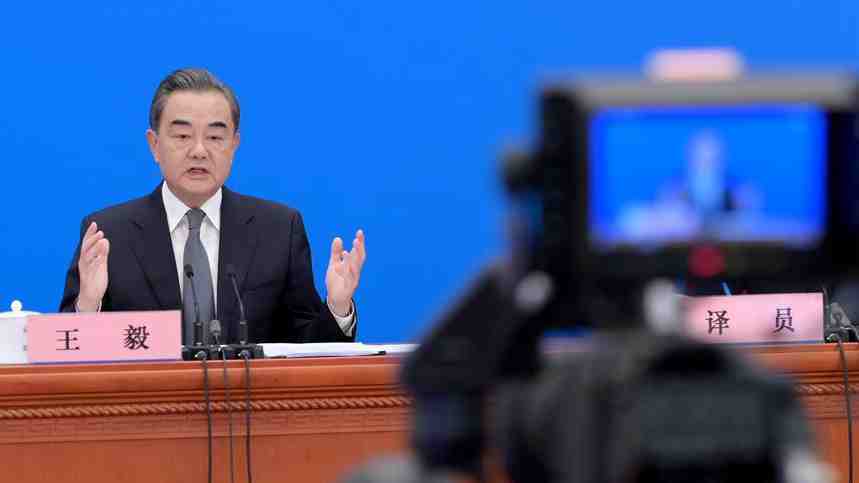
Chinese State Councilor and Foreign Minister Wang Yi at a press conference on China's foreign policy via video link on the sidelines of the third session of the 13th National People's Congress at the Great Hall of the People in Beijing, China, May 24, 2020. /Xinhua
Chinese State Councilor and Foreign Minister Wang Yi at a press conference on China's foreign policy via video link on the sidelines of the third session of the 13th National People's Congress at the Great Hall of the People in Beijing, China, May 24, 2020. /Xinhua
Chinese Foreign Minister and State Councilor Wang Yi on Sunday said China is open to a science-led international effort to determine the source of COVID-19, criticizing some U.S. politicians for spreading lies and conspiracy theories on the virus.
Wang also called for mechanisms to safeguard national security in Hong Kong SAR to be established "without the slightest delay.”
Key quotes: Wang Yi on China's foreign policy
Speaking at a press conference on the sidelines of the third session of the 13th National People's Congress, Wang warned that at a time when global cooperation and solidarity was never more crucial some political forces in the United States were "taking China-U.S. relations hostage and pushing our two countries to the brink of a new Cold War."
The foreign minister said the World Health Organization (WHO) has done a good job and must not defer to any single country, and also addressed China's humanitarian efforts and claims of "Wolf Warrior" diplomacy among other issues in a wide-ranging briefing.
'Political virus' spreading in U.S.
Wang expressed sympathy for the suffering of the American people in the face of the COVID-19 pandemic, which has now killed over 97,000 people in the U.S., but sharply criticized the rhetoric and actions of some politicians in the country.
"It is most regrettable that while the coronavirus is still out there, a political virus is spreading in the U.S. and jumping at any opportunity to attack and slander China," Wang said.
"Some politicians ignore the basic facts and make up countless lies and conspiracy theories concerning China. The longer the list, the more it says about how low the rumormongers will go and the stains they will leave on history."
07:24
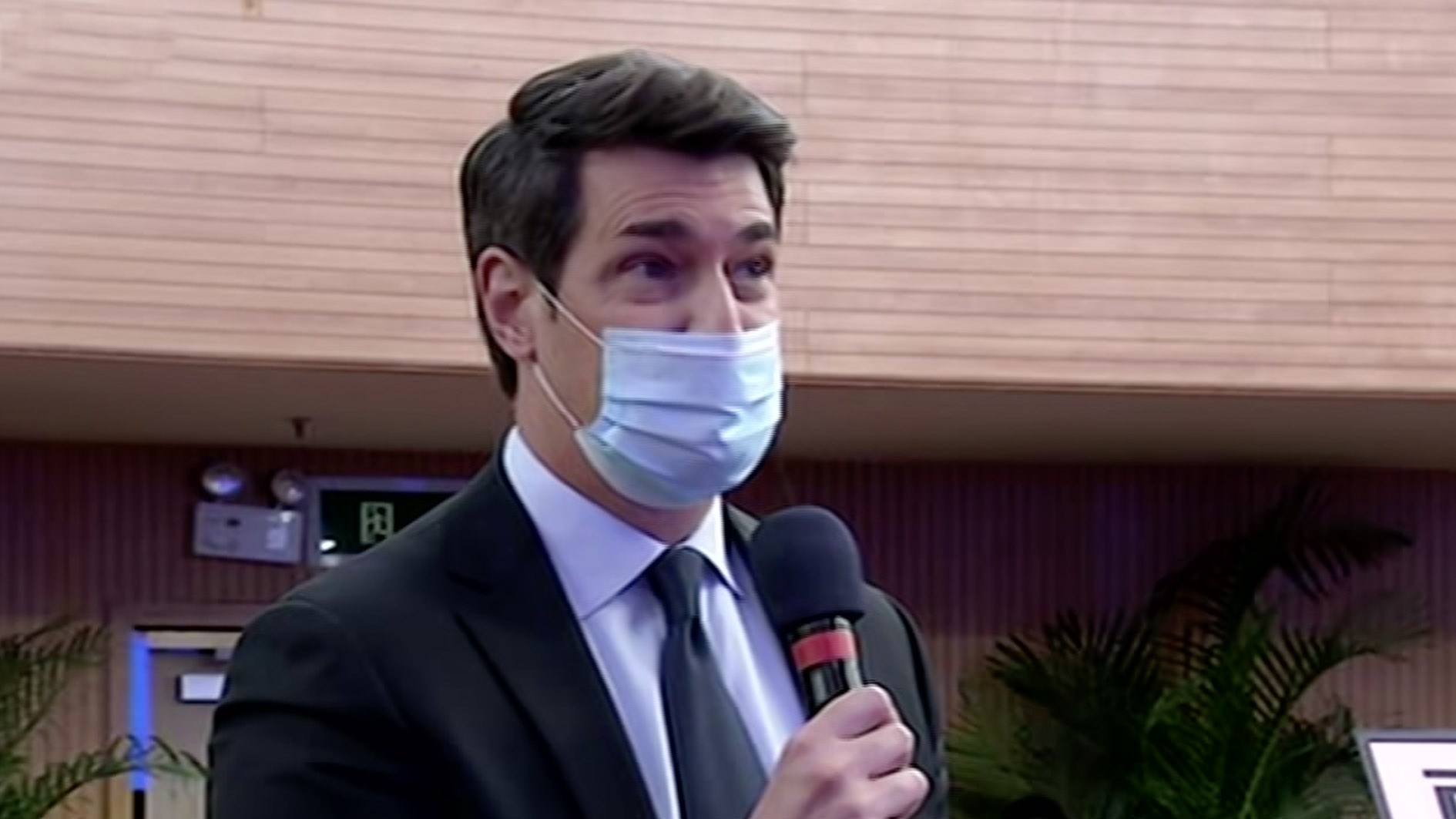
The foreign minister said the virus was a common enemy to the world that could only be defeated through cooperation, adding that China and the U.S. must work together to defeat the virus and mitigate the impact on their own economies as well as the global economy.
"COVID-19 drives home once again that no country, no matter how strong it is, can insulate itself from a global challenge," he said. "Pointing fingers at others will only end up damaging one's own reputation. Self-conceit and blame-shifting will not help one solve its own problems."
China and the U.S. gain from cooperation and lose from confrontation, the foreign minister said, adding that the countries' disagreements shouldn't preclude cooperation. He stressed that China has no wish to change or replace the U.S. and urged Washington to "give up its wishful thinking of changing China."
Virus origins and the WHO
Wang expressed support for a transparent and objective effort to source the origin of the coronavirus, adding that "all countries closely related to the virus should be covered by field missions."
"China is open to joint open efforts by the international science community to identify the source of the virus," he said. "Importantly, it must be a professional, impartial and constructive process."
The foreign minister stressed that the process should be science-based and led by the WHO, adding that it must be free from political interference, respect the sovereign equality of nations and avoid a presumption of guilt.
"History should be written with facts, not tainted by lies," Wang said. "The global narrative about COVID-19 should reflect reason and conscience. Humanity has an obligation to leave behind an objective and truthful account as part of its collective memory."
03:20
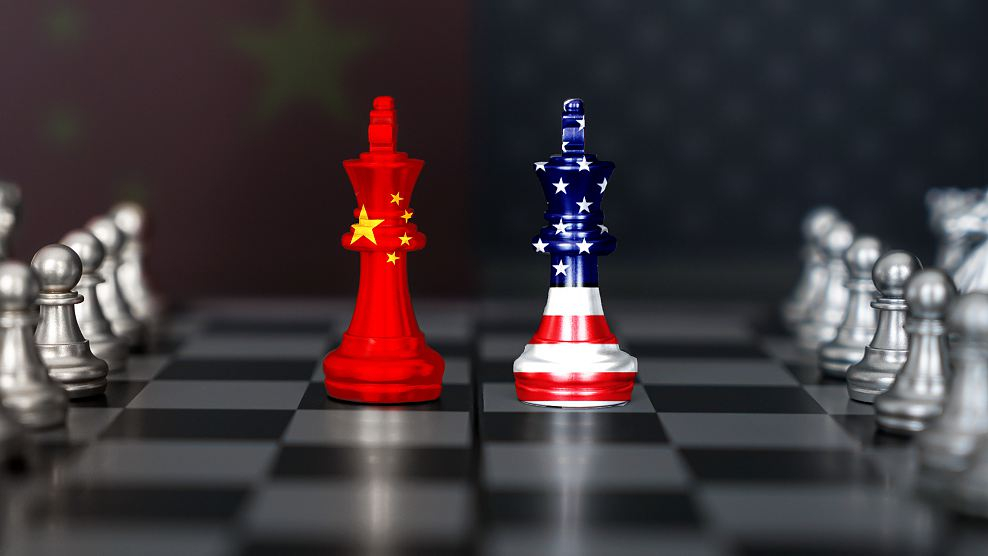
He also dismissed attempts to file "ludicrous" lawsuits against China, saying they had "zero basis in fact, law or international precedence" and noting that China, along with the rest of the world, was a victim of the virus.
"Some people are clamoring for so-called 'accountability and compensation' from a victim of COVID-19 and fabricating so-called 'evidence' for frivolous lawsuits," he said.
"China's record of COVID-19 response is there for the world to see, with a clear timeline and solid data that will stand the test of time."
04:16
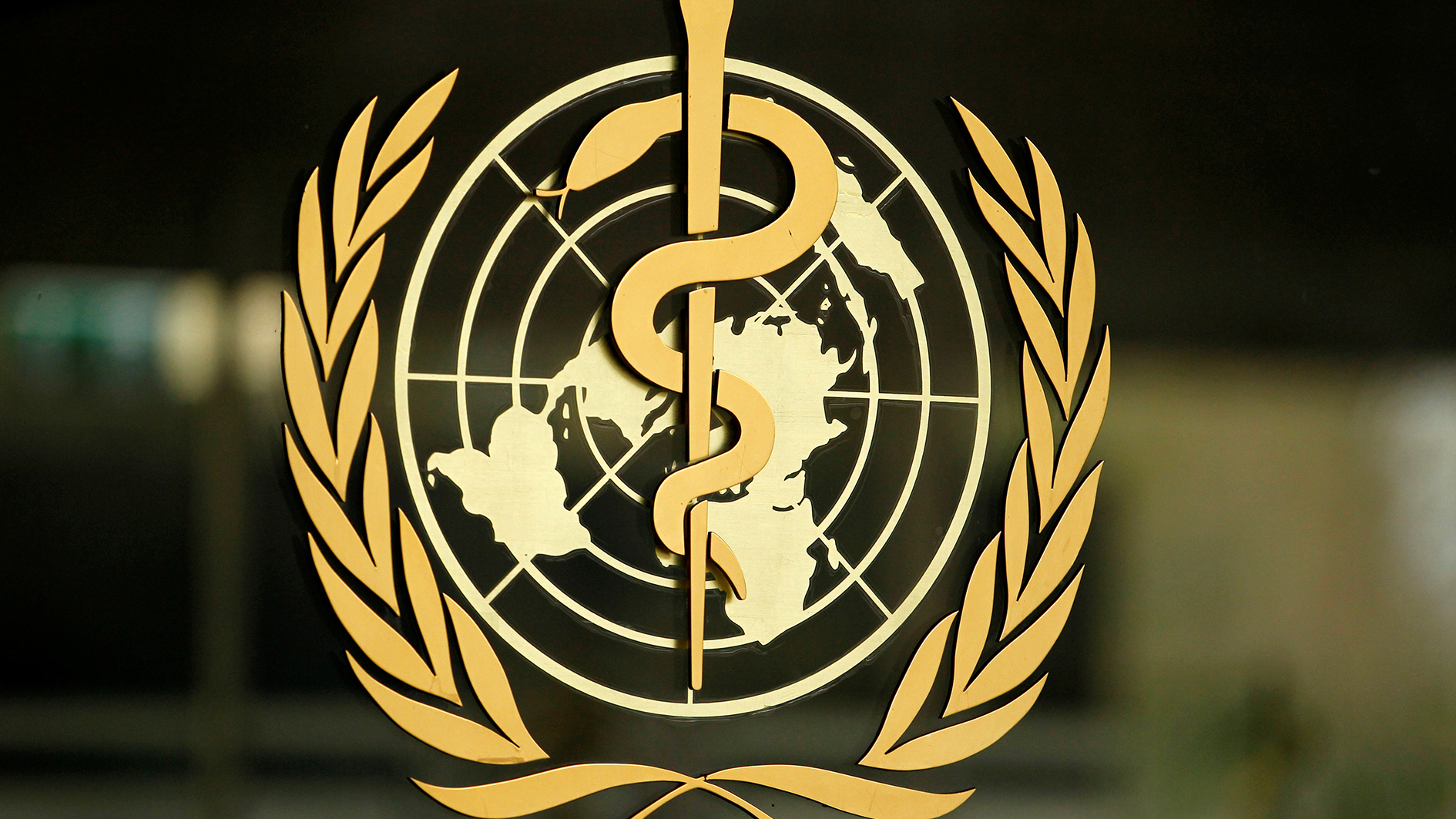
Wang later praised the role of the WHO in tackling the pandemic, saying the organization, from which the U.S. has threatened to withdraw funding and cancel its membership, "has done a good job and performed its mandate."
"What we are seeing is this: those countries that heeded and followed WHO advice are more successful in bringing the virus under control, while those that ignored or rejected its advice are paying a heavy price," the foreign minister said.
He said the WHO does not serve any particular country "and should not defer to any country that provides more funding than others," adding that "attempts to attack or blackmail the WHO are lacking in basic humanity."
Humanitarian efforts
Wang said China had launched the largest humanitarian operation in the history of the People's Republic in response to the pandemic, shipping medical supplies to more than 150 countries as well as exporting over 50 billion surgical masks and 250 million protective gowns.
The foreign minister noted that some political forces "are mischaracterizing our intention," adding that China's response to the pandemic has involved no geopolitical calculations and no economic or political strings have been attached.
04:21
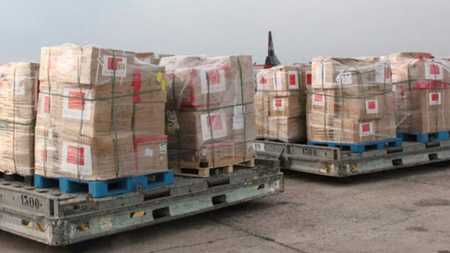
He said China's only goal in its humanitarian efforts was to save as many lives as possible, adding that only when the virus is defeated in all countries can a victory be declared.
"China is not a savior, but we try to be a friend in need," he said, "a sincere partner to be counted on in times of difficulty."
Wang also said that China will work with other G20 members on a mechanism to ease Africa's debt burden.
National security and HKSAR
Wang emphasized national security legislation for Hong Kong SAR was now a "pressing priority" because of foreign interference and "increasingly rampant" violent activities that threaten stability and prosperity of the city.
"Excessive unlawful foreign meddling in Hong Kong affairs has placed China's national security in serious jeopardy," he said. "Under such circumstances, establishing a legal system and enforcement mechanisms for safeguarding national security in Hong Kong SAR has become a pressing priority. We must get it done without the slightest delay.”
04:37
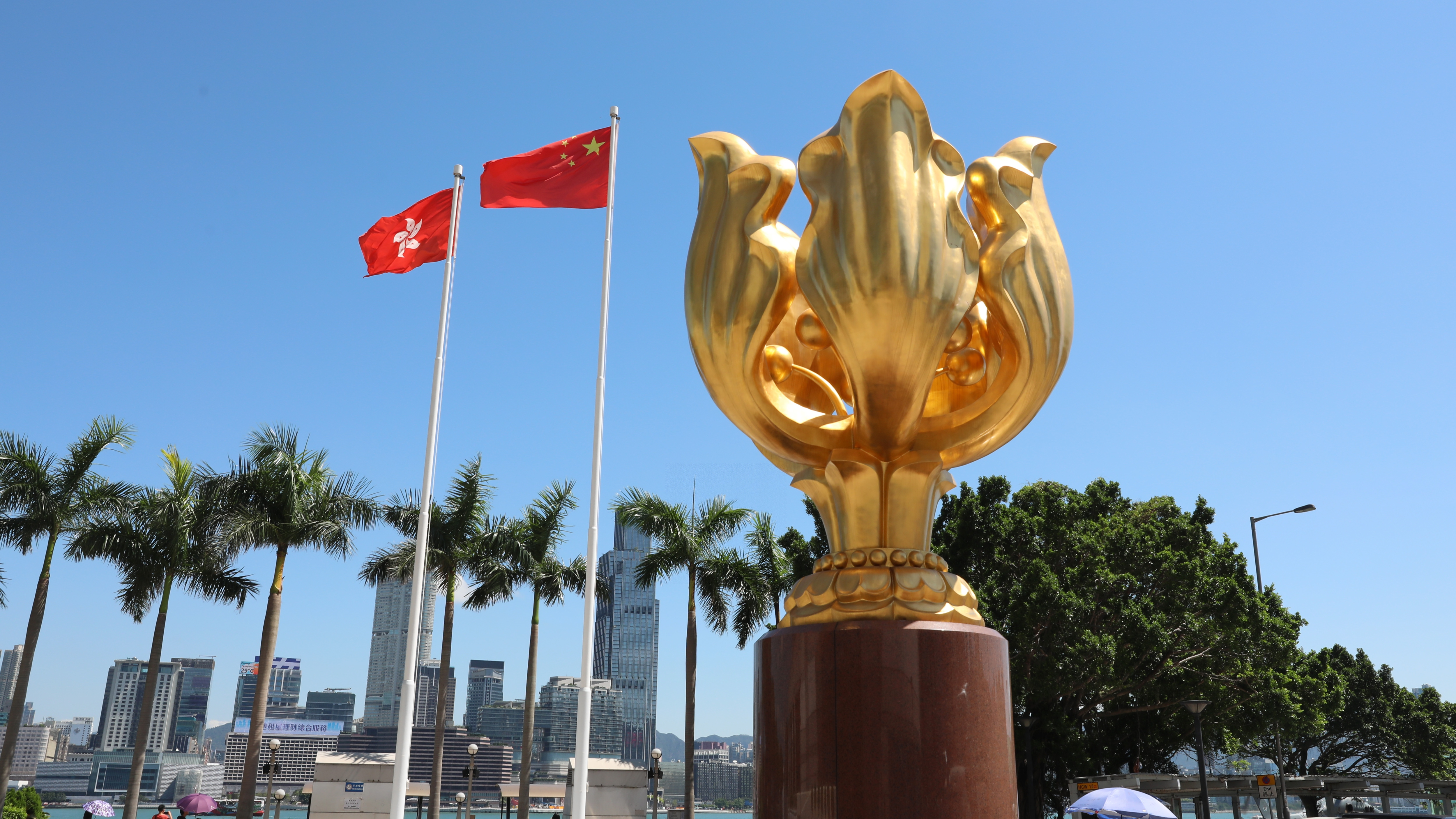
The foreign minister insisted the legislation would not affect Hong Kong's autonomy or the rights and freedoms enjoyed by its residents and would not change the rights or interests of foreign investors.
Wang also addressed Taiwan-related issues, saying "reunification of the two sides of the Taiwan Straits is the trend of history. No individual or force can stop it from happening."
'Wolf Warrior' diplomacy
When asked whether China was now engaging in "Wolf Warrior" diplomacy, Wang said the country follows a foreign policy of peace but will never hesitate to push back against insults or slander.
"We never pick a fight or bully others, but we have principles and guts. We will push back any deliberate insult to resolutely defend our national honor and dignity. And we will refute all groundless slander with facts to resolutely uphold fairness, justice and human conscience."
05:18
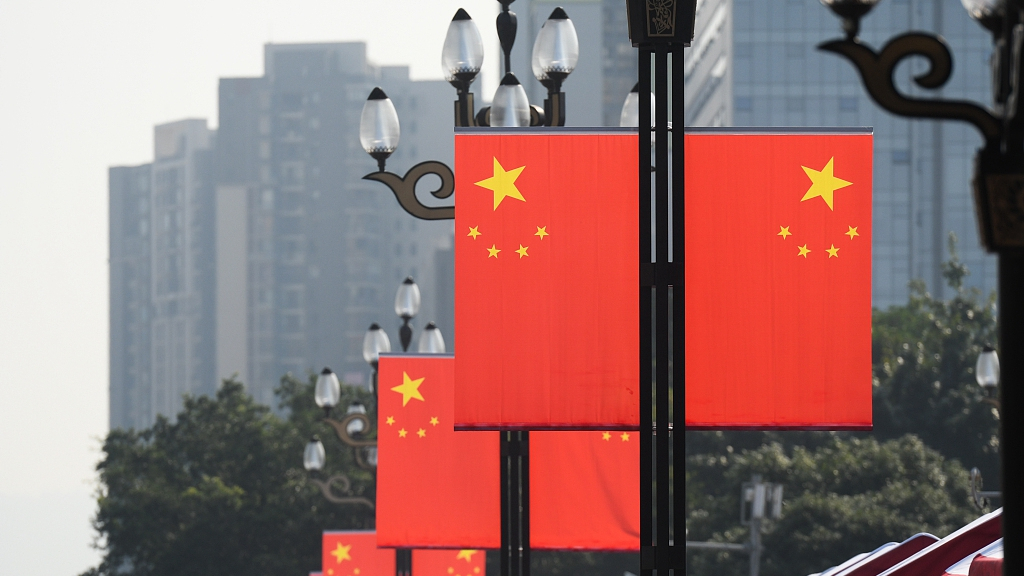
He added that China never seeks hegemony and said "those who go out of their way to label China a hegemon are precisely the ones who refuse to let go of their hegemonic status."
"We must render each other more support and cooperation and there should be less accusation and confrontation. We call on all nations to come together and build a better world for all."
Other issues he covered in the press conference included China's relations with Africa, Russia, the Republic of Korea, Japan and the European Union as well as the role of the Belt and Road Initiative and the situations on the Korean Peninsula and in Afghanistan.